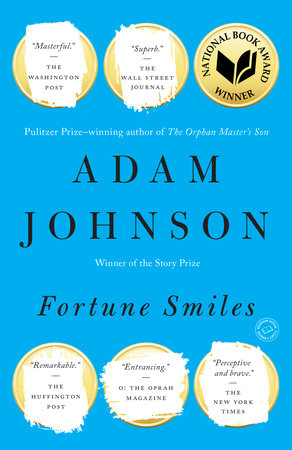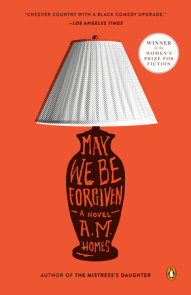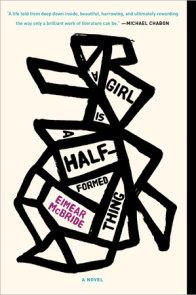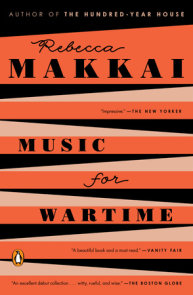READERS GUIDE
A Conversation Between Adam Johnson and Vincent ScarpaVincent Scarpa is a Michener Fellow at the University of Texas and managing editor of The Austin Review.
Vincent Scarpa: How long have these stories been in your arsenal? Were they all completed after The Orphan Master’s Son, or were some in the works before that?
Adam Johnson: That’s a good question. One story, “Hurricanes Anonymous,” I wrote earlier. In the middle of Orphan Master’s Son, I knew that I needed to use a certain kind of third person with a certain kind of distance that I’d never really deployed before, and so I stopped writing that book and I figured, Let me test it out. So I wrote that story, “Hurricanes Anonymous,” that was really ratcheted down and limited in a certain way, as a kind of test run to see if I could do that over a bigger novel. So that story came earlier, but the other five came after I finished the novel. I had just missed stories. I love everything about stories and I’d been just jonesing to write some.
VS: Was there any trepidation on your end, or on the publishing end, in putting out a book of stories—thought of by some these days as a dead-on-arrival endeavor—on the heels of a Pulitzer-winning novel?
AJ: Well, I’m lucky to have a great editor and a great house. I have a sense that the people who read short stories are the ones who want to write short stories, and who are very literary types, and it’s seemed to me always that there’s maybe ten thousand of us out there. But I do believe there has been a resurgence in short stories, and that there are great practitioners—whether it’s Lorrie Moore, George Saunders, Karen Russell—doing great work and who are actually finding wider audiences for stories. Random House has been wholeheartedly behind these stories, and they really want to get them in the hands of readers, so I’ve been fortunate.
VS: I usually wouldn’t ask a writer to talk about the process differences between writing stories and writing novels—for a lot of reasons, but primarily because I just don’t find it an interesting or productive question—but I am curious to hear you talk about it, considering that you write some of the longest stories I’ve read, at sixty, seventy pages. They’re Alice Munro long! And while each story in the collection feels fully realized and exists in a carefully constructed world all its own, I could easily see any of them being stretched into a full-length novel, especially stories like “Hurricanes Anonymous” and “Fortune Smiles.” They feel entirely complete to me as short stories, but undoubtedly contain so many opportunities for expansion. As a reader, I would’ve been down to follow either much longer. I suppose that’s a roundabout way of asking if these always existed as stories or if you had ever planned or tried to work one out into another novel.
AJ: Well, first of all, my process for writing is the same, regardless of form: I abandon my children, I become a horrible husband and a half-assed teacher. That’s what it all has in common. There’s definitely something a little maximal about my writing, just because one of the great joys is building a world out of nothing. That’s the largest pleasure for me, and it takes a lot of page space to do. To make a Stasi prison so that I can see every hall and cell and the looks on people’s faces, to feel the electricity humming through the wires. Or to know every street on a hurricane-ravaged town. Or to see every flashing light in the city of Seoul from the point of view of two defectors. I just have to build that world. I could kind of go on forever. I know these stories are all long, but they are honestly as short as I could get them.
VS: When I first saw that there were only six stories, I admit to thinking, Well, that’s a little light for a collection. But, truthfully, after finishing three stories—“Nirvana,” “Dark Meadow,” and “Interesting Facts”—I was convinced that this was one of the greatest collections I’d ever read. Which makes me want to ask a question about ordering—how much thought went into the placement and arrangement of these stories? Do you see any of the stories as speaking to one another in a way—responding to one another, or echoing/ricocheting off one another—or maybe perhaps even negating in one story something that felt true in the story prior to it?
AJ: That’s a great question. I just write the stories. I trust the publisher to change the order, change the title, you know. “Fortune Smiles” felt like a hopeful note to me, because even though there are some heavy scenes in the book, you’ve got to go forward. So that one seemed like a good one to conclude with. “Nirvana” is a good opener because it’s quickly engaging—within two pages, you have a drone that appears and the president comes to life.
I’m always afraid, as a writer, that the reader is going to quit reading at any paragraph, so I feel like if the language isn’t there, if the dialogue isn’t right, if there isn’t development—if I’m not giving the reader a constant stream of candy, in one form or another—they’re just going to abandon me. That’s my great fear.
VS: Tell me a bit about how “George Orwell Was a Friend of Mine” came to be.
AJ: I was in Germany, and German television wanted to interview me. And they must have thought I liked torture because of my North Korea book, so they were like, “Let’s interview you in a former torture prison!” And so they took me to this prison and did this very grim interview with me in a cell where people had been interrogated forever. It was a very creepy, creepy place. Afterward, I took a tour with the director, and he told me that the whole neighborhood is filled with all the Stasi officers who used to work there, and they sneak in all the time and make YouTube videos. And he said the warden walked his little dog around the prison every morning. I asked if he’d ever spoken to him and he said no.
All that to say that, for the fiction writer, the half-seen thing is what sparks the imagination, and your mind begins filling out the rest of the portrait. That idea of the warden and his little dog—it wouldn’t let go of me! How does that man justify what he did? How does a person reorient their psyche toward hurting other people in the name of good?
VS: I have to ask a few questions about “Dark Meadow,” the story that I think is really the crown jewel in a collection of perfect stories, and a story that I hope will be read and taught for years to come. Mostly what I admire about it is that you’ve tackled a subject—in the first person, no less—that most writers, myself included, would be reluctant to touch with a ten-foot pole. I’m reminded of two things the narrator of “George Orwell Was a Friend of Mine,” in attempts at self-exoneration, says: “someone must undertake the unpleasant tasks” and “the truth is that duty calls upon us to perform tasks we’d rather not.” Do those sentiments resonate with you at all, as a writer, and perhaps serve to explain why you’d willingly go into the mind of a pedophile? Was it a kind of duty to go there as a writer?
AJ: I have many answers to this question, because the story doesn’t have a simple source. I do feel like several years ago my writing took a turn toward creating portraits of people you just don’t hear from, including people who can’t or won’t speak for themselves. I tell my students all the time that the odds you’ll be a good storyteller and you’ll have an important story to tell are quite rare. Those are long odds. So if you are good at storytelling, you have a duty to tell the stories of others. After I went to that Stasi prison, I asked if anyone could recommend a good Stasi memoir, and not one person could. You know, if I could’ve just read a book, I probably wouldn’t have written the story. Writing about North Korea, I just became ravenous with curiosity, and the human portrait of what is it like to be a North Korean is something I couldn’t find. That’s when my mind started writing it.
With “Dark Meadow,” you know, it’s very rare and brave for victims of abuse to come forward, but there are almost no offenders. Literally, try to find—outside of medical literature—one person who will say, “I did monstrous things. I am no longer that person, but here’s what I did and why I did it, and I’m going to share with you this human possibility.” It just isn’t out there. They’re the biggest pariahs in our society, all the more reason we should look at them, especially if the offenders were once victims, and I believe that in many cases that’s also true.
It puts to the test the notions we bandy about very lightly in the humanist realm of the university that everyone has full humanity and we are all essentially the same on some level. We like to act, in the university, like every single person does have full entitlement to being a human being. And that’s something I believe. But it’s not something easy to write.
VS: I’m not going to ask about the truth content of “Interesting Facts,” because if that’s what interests you about the story, I think you’ve missed the story. But I would love to hear you talk about your intentions in writing a story in which the narrator’s husband is a Pulitzer Prize winner who has written a novel about North Korea and who attended a Florida university—a man uncannily not unlike yourself. The wife, also a writer in the story, even goes so far as to say that her husband has stolen a character from her, a sexual predator, and published a story called “Dark Meadow.” What are you asking the reader in “Interesting Facts” to consider or to gnaw at by including this autobiographical element?
AJ: Well, putting so much obviously factual material in a piece of fiction of course invites the reader to ask that question. So it’s perfectly natural. My motivations are more simple and less noble. The way my mind makes sense of things is through narrative. So this is just something that happened in our family a few years ago. My wife got breast cancer. It was a very chaotic time. We have kids. There was all this stuff going on, and my mind just turned it all into narrative. I know it might sound trite to say, The story picks you. But it’s true.
VS: And the story serves to help compartmentalize that chaos?
AJ: I think so. And a story forces meaning on something, it’s a meaning-making machine. And the story is going to come up with an answer. It’s a dangerous thing to play with, a story, when you put personal material in there, because you might not like the answer.
VS: What’s next for you?
AJ: Well, I’ve just always written whatever I’ve been drawn toward. Having written the novel for many years, I was just jonesing to get back to stories. I just love the form. I wrote five of them, big wild-world stories. And I just started writing a novel last year that I’m about halfway through: a big, crazy, goofy novel that it’s hard to believe I’m actually doing. You tell someone at a party what it’s about and they kind of give you that smile. I get that smile a lot.
This conversation originally appeared at tinhouse.com.
Questions and Topics for Discussion
1. How would you describe the elements that these six stories have in common? Are there themes that recur?
2. Discuss the importance of place in these stories, which range from Louisiana post-Katrina to a former prison camp in East Germany to North Korea. To what extent are these stories that could only take place in these locations? To what extent are the experiences of their characters universal?
3. In “Nirvana,” why do you feel the narrator has created a holograph of the president? What purpose do his conversations with the president serve? How do you think Charlotte feels about this?
4. Describe the father-son relationship in “Hurricanes Anonymous,” and how you understand Nonc’s sense of obligation to Geronimo and Relle. Is Nonc a good father? What does this story say about the bonds of individual love versus the bonds of family? What does this story say about the diasporas that occur after natural disasters?
5. “Dark Meadow” and “George Orwell Was a Friend of Mine” both feature narrators who have done—or are drawn to doing—terrible things. Talk about how your perspective on these characters changed over the course of their stories—at the end, were your feelings about their choices different from what they were at the beginning?
6. In “Interesting Facts,” the narrator’s husband has a biography similar to the author’s. What did you make of this? Does the narrator’s relationship with her husband and family change over the course of the story?
7. What is the role of humor in these stories?
8. Many of these characters seem motivated by shame—over their past, or their actions, or their sense of failure. Does a sense of shame motivate them to be better toward others, or does it make them more selfish?
9. Would you describe the stories as each being distinct in prose style? Or quite similar? If so, what are the continuities?
10. Talk about the ending of “Fortune Smiles.” How do Sun-ho’s and DJ’s experiences of defection differ? Does the story change your understanding of what it means to defect from a place like North Korea?






















